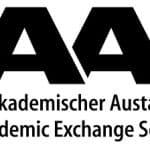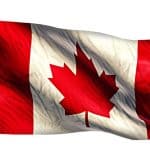A study plan gives you the opportunity to explain why you want to study in Canada to a visa officer. Also known as a statement of purpose or a letter of explanation, the study plan is a crucial requirement for your Study Permit Application.
Therefore, in your study plan, you need to summarize your application, your plans to study in Canada, and what you will do after your graduation.
Furthermore, a good study plan must communicate your information in a clear manner. Note that you need to tell the truth because your study plans will be part of your Canadian Immigration file.
Table of Contents
What Is A Study Plan?
A study plan refers to a written document that shows your motivations, goals, level of experience, and qualifications for pursuing an academic or career path. Note that you need the document because it is part of your application process for graduate programs.
To structure your statement of opinion, you must have the following:
- Introduction:
- Background and Inspiration:
- Motivation and Goals:
- Relevant Skills and Experiences:
- Fit with the Program:
- Future Contribution
- Conclusion:
Note that your Study Plan must be:
- authentic,
- concise
- and passionate.
Why Is A Study Plan Important?
Most study plans require academic credentials, good grades, and results from examinations. They are written to portray a better version of yourself to the admissions boards.
Furthermore, the study plan is written to show and provide the admissions committee with your background and why you have chosen their institution as your place of study. Additionally, it gives them a reason why they should consider you the perfect candidate. Therefore, it gives them a preview of how well you are prepared to handle the rigors of a college education.
Overall, a study plan helps to express your record before the visa officer.
What to Include in your Study Plan
1. An Introduction
The introduction shows what the visa officer should expect from the document. Your introduction should include:
- the purpose,
- name of the school,
- program of study,
- and what you are applying for (e.g., study permit, co-op work permit).
You should also mention the names, the kind of relationship in the case of accompanying dependents, and the kind of visa they require.
2. Educational Background
Your study plan should include details of your education or your professional or career history. This includes:
- your previous education,
- professional or entrepreneurial career
Note that all this will be assessed in relation to your intended study in Canada.
3. Work Experience
For those who have professional or entrepreneurial careers, this section allows you to show your previous education or career path, as well as your goals and achievements. Additionally, you should identify how your education and work experience inspire you to pursue further education.
However, if you do not have work experience, you should focus on your previous education, family accomplishments, and post-graduation as motivators to seek a higher and quality education.
4. Canadian Study Goals:
Education in Canada can be overwhelming; therefore, you must undergo the journey with a clear goal. In this part, you should give details of your reason or purpose for choosing to study in Canada. It should answer questions like:
- Why did you choose Canada?
- Why did you choose the institution?
- Why did you choose the program?
Note that you should highlight why your education in Canada is important to your home nation.
5. Available Funds:
Note that you must have funds available to cover your studies and stay in Canada (including for your accompanying dependent, if applicable)
This section should identify:
- The total amount you need and the amount available
- The total amount of funds you have set aside for studies and living expenses Additionally, it should include the source of the funds.
- Where did the funds come from, i.e., Employment, savings, loans, and scholarships?
6. Post-Study Plans
Since your study permit is a temporary resident application, you should convince your visa officer that you will return to your home country if you cannot qualify for any other status in Canada. In this case, your post-study plan is important in this situation:
- What will happen after you graduate?
- What are the benefits of completing this program?
7. Revise And Edit The study plans
After you are done drafting, you should read it aloud to yourself and make any necessary corrections where due. Additionally, you can ask friends or your tutors to read and edit it for you.
Sample of a study plan for Canada
Capital City – July 20, 2021
To Canadian Embassy
Visa Office City,
Country (find the visa office for your area)
Subject: Study plan
Body of the letter
To Whom It May Concern:
I have been admitted to the XXX program at Université Laval. Further to this, here you will find all the information detailing my plan to study in Canada.
The content of the letter must be relatively short (2 to 3 pages maximum), clear, and factual. The details should be specific to your situation, not general statements. We suggest that you organize your letter by topic. You can follow the template below to help you prepare your study plan.
Introduction
Name, age, nationality, academic and professional background
My career goal
My career goal is …
Why I chose XXX University
I have chosen to take the XXX program at Université Laval in Canada because of the level of quality of the program, facilities, and laboratories and because of the expertise of the teaching staff…
The XXX program is not offered in my home country, or The quality of the XXX programs in my home country does not meet my level of expectation and will not enable me to gain a top-quality international education because [explain the reasons]…
To stand out in the job market [field and country] and reach my career goals, a top-quality education, such as a XXX University education, is required…
How I plan to find a job in my home country
When I come back to my home country, I will be able to use my degree in [field of study] from one of the best universities in Canada. The degree will help me stand out in the Study Plan Template among other candidates and secure a job as a [title of the anticipated job] with organizations such as…
In my home country, job prospects in my field of study [specify] are promising [or excellent] [explain: expanding sector, shortage of qualified workers, significant need due to economic growth, etc.]…
I have already worked for an organization in this field, and the organization is willing to hire me when I return [promise of a job] …
I already have a job in this field, and my employer has granted me leave without pay [or has temporarily laid me off, given me time off with pay, etc.] for my studies in Canada. Attached is a letter confirming this…
If you are going back to school or changing fields, this must also be noted and explained.
How I am funding my studies
As I am aware of the high cost of living and studying in Canada, I plan to support myself and pay my tuition fees through… [give details about your funds].
Polite closing
Sincerely,
Handwritten signature
My Name Name (please print)
1000 George Street
My City, My Country
[Original source: https://www.ulaval.ca/sites/default/files/International/Immigration/Study%20Plan%20Template.pdf]
Contact AfterSchoolAfrica For Your Admission
For international students looking to get a quality education, it can be financially demanding. At AfterSchoolAfrica, we understand that education should be based on the potential for value creation to build an inclusive global economy.
Furthermore, we can help make this dream a reality by offering scholarships, loans, and work-study programs for financial assistance. Therefore, by exploring these avenues, you can focus on your studies without worrying about financial burdens.
Additionally, through our global education lending partners, we now help and support African students to fund their graduate education in the US, Canada, or the UK. You don’t need collateral or a Cosigner.







